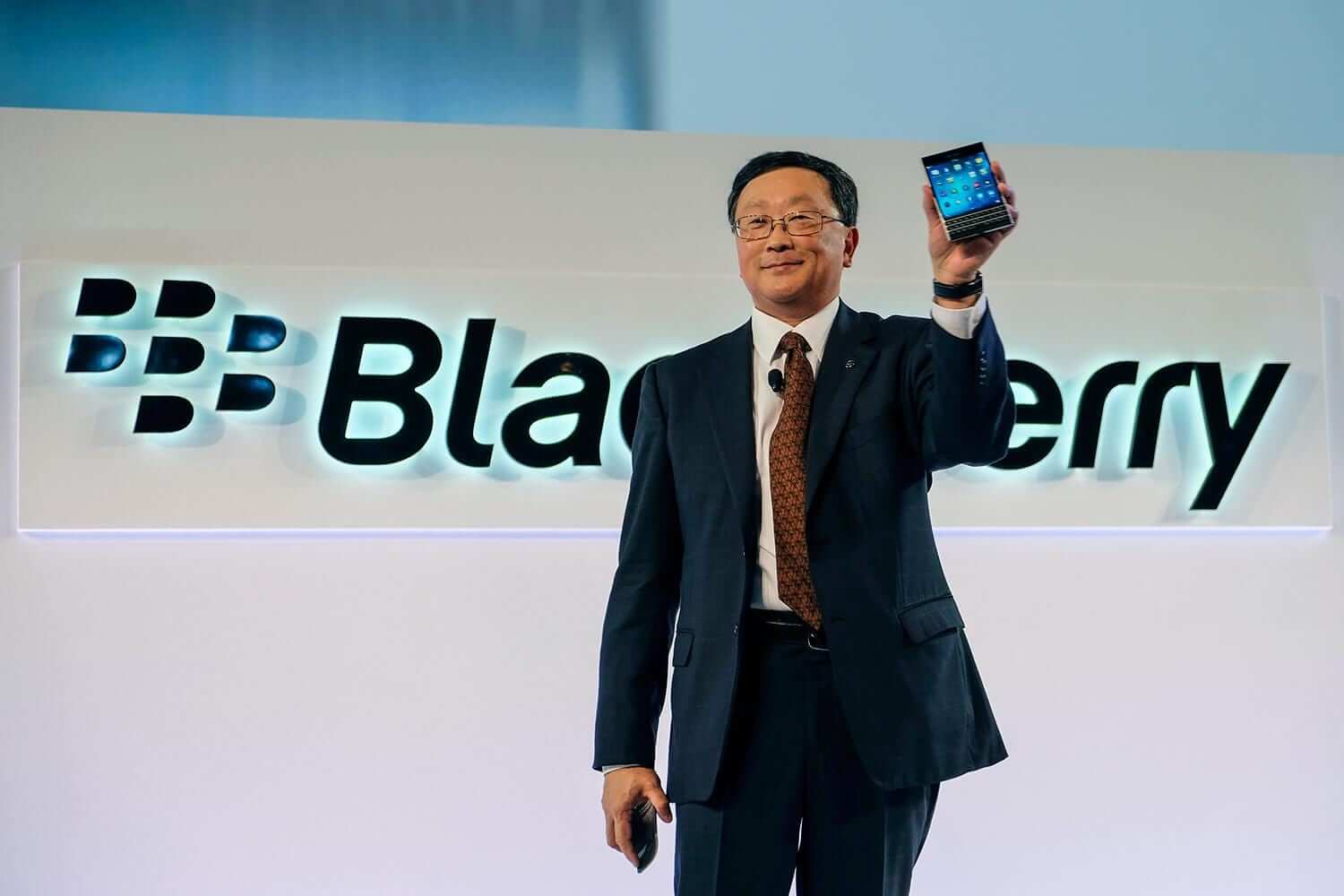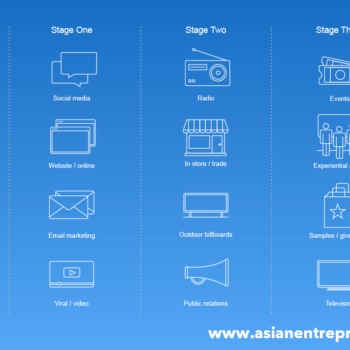Blackberry’s business-level strategies can be best understood and appreciated with a careful analysis of its strategic development to date.
Importantly, in early 2007, when Apple introduced the world to the iPhone, Blackberry maintained and pursued strategies that did not account for the true disruptive nature of the smartphone. At the time, Blackberry was a highly valued company that had strong market share with share prices peaking at USD$ 236 per share. Consistent growth in revenue confirmed the fact that Blackberry had popular product offerings that not only commanded high price points but also immense customer loyalty. Having a proven recipe for success thus far, Blackberry substantially underrated and certainly did not anticipate the competitive threat posed by smartphone technology.
Indeed, for the senior executives at Blackberry, there was widespread conclusion and agreement at the strategic level that the company would allow Apple to focus on the smartphone market which was largely perceived as an unproven market at that point, whilst Blackberry would continue its focus on the existing business model and selling its proven products. This is evidenced by Blackberry’s slow reaction to adopting and introducing smartphones of its own. For Blackberry, its own phones stood as highly differentiated with a very specific but large and successful market. Despite this, the value of Blackberry’s product was eventually and largely overshadowed by the smartphone, its capabilities and the changing landscape of the industry. It was this failure to identify, react and adapt strategically to this disruptive innovation that led to Blackberry’s loss of its strategic position.
In response to this, in the past few years, Blackberry attempted to gain a competitive advantage via a number of strategies. In late 2008, Blackberry began to produce its own smartphones, the Storm, in an attempt to ride on the growth of the smartphone market. Unfortunately, the company did not secure a strong position within the market, as the Storm met mediocre consumer reviews in both its unimpressive technical features and software experience.
The truth is smartphone technology and software did not lie in the company’s traditional core competencies. The company also could not outsource and rely on the competencies of other experienced developers, such as Google Android, that has yet to enter the marketplace at that point.
Blackberry then made the strategic decision to enter emerging markets, particularly, Latin America and Asia, with a price-centric approach. The company’s smartphones were priced lower compared to its competitors. This strategy enabled the company to gain a short-lived competitive advantage (especially when consumers in many of these markets are extremely price conscious due to comparatively lower disposable income levels), as Blackberry saw a steady growth in market share in these regions.
For example, in some regions the phone held up to 50% of the market. However, these markets eventually saw the introduction of new entrants in the form of numerous Asian companies that produced substantially cheaper phones, fundamentally challenging Blackberry’s cost leadership.
Blackberry attempted diversification, via the purchase of QNX Software Systems, an operating systems developer, in 2010. QNX’s acquisition was considered by the company as important as Blackberry tried to improve its own core competencies, especially in software developments. With QNX, Blackberry then pivoted into the tablet market with the release of its own QNX-based tablet, the Playbook. The Playbook again met negative reception and represented a commercial flop for the company, as it was over-priced, relative to its performance and technical capabilities.
Consumers had strong loyalties to Blackberry’s competitors, who had already built strong market share at that point and they were not willing to switch to what was considered an inadequate product by a company that had failed to prove itself in the new shifting landscape. Blackberry’s failed strategic implementations had forced the company to reconsider some of its strategic approach.
Blackberry is currently focused on a complete strategic overhaul. Firstly, the company is looking to lessen its strategic focus on the mass consumer market with smartphones but instead focus on niche markets with its product offerings. Particularly, the company has long had a track record for its security systems and capabilities which represents a strong competency for the company. Instead of competing on securing its own position within the general consumers market which is now heavily competitive and saturated by a plethora of smartphone companies, the company is currently looking to target enterprises and focus on enterprise services. From this market’s perspective, Blackberry’s products and services (particularly its security capabilities) are highly differentiated and valued compared to other competitors.
This strategic shift is evidenced by the Blackberry’s recent release of the Blackberry Enterprise Service 12, a cross-platform enterprise mobility management platform that allows organizations the ability to securely manage mobile devices. Blackberry’s newly appointed CEO is quick to make clear the shift as well in many of his media appearances where he has emphasized the focus on Blackberry’s “core strengths” in enterprises and security. This strategic shift holds promise for various reasons. Firstly, the initial success of Blackberry at its inception, was on built on its security and relevance within an enterprise context. Blackberry has an established reputation on these grounds. Evidenced by the fact Blackberry products are the sole products used by many in regulated industries, such as the United States’ Department of Defence which has only to date authorized, Blackberry devices for employee’s use. Compared to this understanding, Blackberry has spent too much time and resources developing new competencies to compete in the mass markets which has been largely unsuccessful.
Secondly, security is becoming much more of a pressing issue in recent times, with the latest headlines revolving around cyber-attacks of various degrees. As the data and connectivity grow to define the future, security becomes an important service that is harder and harder to ignore.
Thirdly, Blackberry is also looking to diversify, primarily via a focus of developing and expanding many of its popular services, many of which were previously available exclusively to its products, and offering them to consumers on a service level. We can see this strategic development via the launch of The Blackberry Messaging Service (“BBM”) on almost every mobile operating systems. There has been great reception here as more than 40 million users have signed on to use BBM.
In the media, Blackberry has made clear that they intend to develop and grow the base of Blackberry service users with services being a large potential stream for future revenue. The move is relevant, as the immense growth of smart device users in the recent years present a lot of growth opportunities to service providers and software developers. However with this being said, this industry is also largely competitive and Blackberry would need to be able to swiftly identify trends, adapt quickly and innovate in meeting consumer demands to be able to truly capture and sustain a competitive advantage here.
Blackberry’s strategic initiatives have seen variations through the years as observed above. Although business level strategies such as cost-leadership have been attempted to a degree of success by the company in recent times, such a strategy does not guarantee a long term competitive position. This is because no matter how cheap BlackBerry makes its products, there will always be a room for vendors, especially from emerging markets, to go cheaper.
The recent introduction of Hongmi, a Chinese smartphone which features a quad-core 1.5GHz processor, a 4.7-inch screen and a 8-megapixel camera that only costs a surprising $130 off-contract is a prime example.
On the other hand, the growth of security and privacy as pressing issues in recent times clearly demonstrate that there is a huge need to secure mobile communications and that presents a lot of room for Blackberry to utilize its core competencies and differentiate itself from its competitors.





























